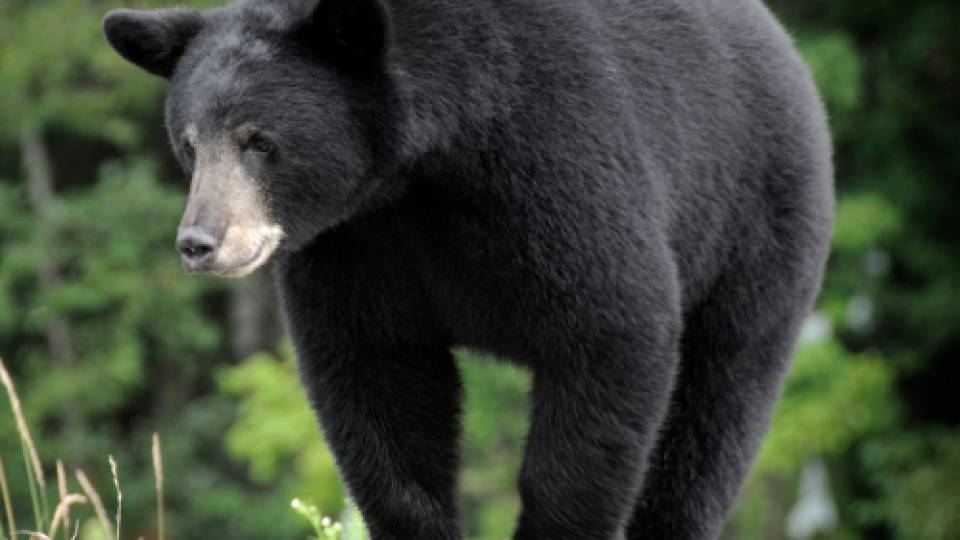by Robert Fisk, Jr. (Feb. 1, 2006 - Bangor Daily News).
The fallout of the close election to ban the hunting of bears with bait, hounds and traps was the submittal of eight different bear bills to the legislature last year. The Committee on Inland Fisheries and Wildlife, instead of addressing them, directed the Department of Inland Fisheries and Wildlife to seriously review all bear- hunting practices while involving all the stakeholders. This “bear working group” has been meeting since early October. The DIF&W will consider suggestions from this advisory group and make its report to the committee this legislative session.
Whatever you make of the bear referendum and its results, one unquestionable result is that bear hunting in this state will never be viewed the same. The public awareness that came from the referendum changed all that. It is far more difficult for intransigent positions to survive among the increased public awareness and a changing political environment. If the Department’s report is essentially a whitewash or status quo document that has no meaningful changes, then those who went into this process open-minded will be hardened like never before. A Bangor Daily News editorial two days after the election read: “The results on a proposal to ban baiting, hounding and trapping bears was 47 percent Yes to 53 percent percent No, a vote much closer than this region might have guessed. Advocates of the ban need only look at Maine’s shifting population to figure out that their time is coming - unless alert lawmakers act sooner. A sensible step would be to separate baiting from trapping and hounding, protect the first and ban the latter.”
That is exactly what proponents for change have advanced in these advisory meetings. Representatives from Maine Friends of Animals, The Izaak Walton League and The Wildlife Alliance of Maine have put forth that position as a very reasonable compromise that would go a long way in diffusing a growing divide.
Ten considerations for the DIF&W on ending bear hounding and trapping:
1. These methods are very unsporting. The common thread in both “hunting” practices, as well as with baiting, is that there is no hunt or fair chase in killing a bear at point blank range with its head in a bait bucket, treed by hounds or agonizing in a leghold trap.
2. Cruelty resonates with the public. Even if the department and the hunting lobby do not feel bear trapping or dog and bear/cub fights are cruel, the vast majority of Maine citizens do.
3. There should be no financial loss to the department as baiting and fair chase licenses can easily make up any decrease in numbers.
4. Hounding and trapping make up only 15 percent of the animals taken. Questionable bear management arguments cannot be used, particularly when those numbers could be taken by fair chase hunters who make up all the bear hunting in states like Washington, Oregon and Colorado.
5. These practices are controversial among hunters. There is an increasing divide about ethical hunting practices.
6. Public opinion. Opinion about these issues will never be the same after the bear referendum and it would behoove the Department to not continue to disregard the growth of nonconsumptive wildlife users who are increasingly outnumbering sportsmen.
7. Nonconsumptive users like wildlife viewers, kayakers, primitive outdoor campers, bird watchers, hikers and wildlife photographers are being shut out of wildlife decisions by a hunting lobby and its proprietary attitude. If this bear working group does not provide something meaningful, further division among hunters and non-hunters will increase.
8. The image of Maine hunting is that of control by an extreme hunting lobby. Of the 27 states that allow bear hunting, 23 prohibit hounding and Maine remains the only state in the nation that still allows the barbaric practice of trapping a bear. The bear referendum unfortunately painted all hunters as inhumane and unethical - banning these two more egregious forms of hunting would go a long way to reverse this negative image.
9. Hounds will also chase, harass, injure and kill other wildlife and domestic animals, thus becoming a nuisance or threat to public and private lands.
10. Ending trapping and hounding is politically the smart thing to do. There is little to lose and much to be gained.
The legislative directive to seriously review the bear hunting practices in this state is an opportunity for the department and sportsmen alike to be viewed as positive agents of change. Doggedness with divisive positions is not in the best interest of hunters and hunting.
If inflexible hunting groups and the department continue to insist on no hunting restriction on any hunting practice, continue to exclude the non-consumptive users from any meaningful opportunity to address issues, and continue a rigid ideology that hardens positions, then I fear we will see a greater division and escalation of tensions between hunters and non-hunters, growing criticism of a department that continues to serve a special interest group and not all its citizens, more contentious legislation, and an increase in the calls for other referendums. Sides will be polarized as never before.
The ball is in the DIF&W’s court.
Robert Fisk Jr., of Falmouth, is the president and director of Maine Friends of Animals.


